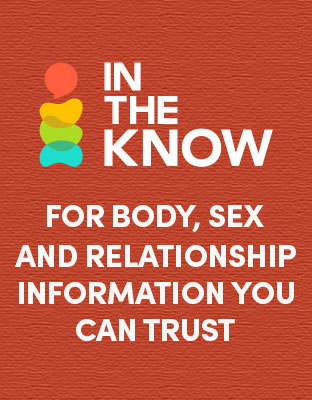$1.4 million to increase cervical screening among people with intellectual disability
Family Planning NSW has received a 3-year grant of $1,433,806 for its CIRCE project: 'Overcoming Inequity: Increasing Cervical Screening Participation for People with Intellectual Disability'.
In partnership with researchers at the University of Sydney, Western Sydney University, UNSW Sydney, Cancer Institute NSW and peak disability organisations, Family Planning NSW's CIRCE project will identify methods to increase engagement in the National Cervical Screening Program for people with intellectual disability.
Family Planning NSW Medical Director Professor Deborah Bateson said the project will develop and trial co-designed information and training resources that aid people with intellectual disability, their carers, GPs and disability support workers to increase cervical screening access and uptake.
"We're delighted to receive this grant, which recognises the equity gap for people with intellectual disability in accessing healthcare, in particular lifesaving screening to prevent cervical cancer.
"This research will have national and global implications, establishing Australia as a world leader in supporting people with disability to make informed choices about their reproductive and sexual health," Professor Bateson said.
While Australia is on track to eliminate cervical cancer by 2030, Professor Bateson says screening rates of people with intellectual disability are at risk of falling behind. Approximately 72% of people who develop cervical cancer are overdue for cervical screening by at least two years or have never been screened.
"People with intellectual disability are less likely to participate in cervical screening, and experience multiple barriers to access.
"Specialised training for GPs will also help ensure people with intellectual disability understand the procedure, feel safe, and provide informed consent to screening," Professor Bateson said.
Professor Bateson added that the low uptake of cervical screening among people with intellectual disability could stem from fear or embarrassment, communication as well as physical or sensory barriers, an unwillingness to disclose sexual history, or past medical or sexual trauma.
"There also may be an assumption from some carers or healthcare providers that cervical screening is not a priority for people with intellectual disability, who may be incorrectly perceived not to be sexually active."
Through an innovative co-design and co-produced approach, the CIRCE project will support informed decision-making and improve cervical cancer screening participation for people with intellectual disability.
For more information on the CIRCE project, please contact the Family Planning NSW Research Centre at researchcentre@fpnsw.org.au.
– ends –
Media enquiries:
P: 0402 880 653
E: media@fpnsw.org.au
W: https://www.fpnsw.org.au/




